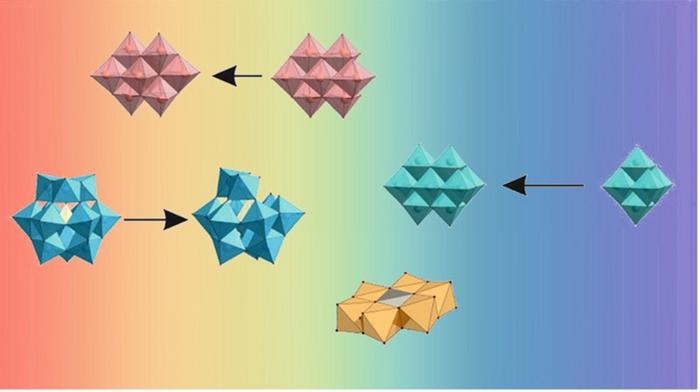To unveil the previously elusive behavior and stability of complex metal compounds found in aqueous solutions called ‘POMs’, researchers at the University of Vienna have created a speciation atlas now published in Science Advances. This achievement has the potential to drive new discoveries and advancements in fields like catalysis, medicine, and beyond.

Credit: Annette Rompel
To unveil the previously elusive behavior and stability of complex metal compounds found in aqueous solutions called ‘POMs’, researchers at the University of Vienna have created a speciation atlas now published in Science Advances. This achievement has the potential to drive new discoveries and advancements in fields like catalysis, medicine, and beyond.
Metal atoms can form tiny 3d structures with oxygen, intricate frameworks that look not unlike wire mandalas and that are called ‘polyoxometalates’, or ‘POMs’ for short. These POMs are useful for controlling chemical reactions in chemistry, biology, or material science, but also are relevant for understanding natural processes in these fields. However, like wire mandalas, their structure is highly variable and depends on minute changes in their environment, making it very difficult for researchers to predict their structure and thus their function for various applications, from medicine to environmental remediation.
Nadiia Gumerova and Annette Rompel from the Faculty of Chemistry at the University of Vienna have now developed a so-called ‘speciation atlas’, a cheat sheet that allows researchers to accurately ascertain the expected structure and behaviour of ten commonly used POMs for any given chemical condition. More specifically, this atlas is a database including a predictive model that can be extended to other than the ten selected POMs, that will yield POM species distributions, stability and catalytic activity considering the factors pH, temperature, incubation time, buffer solutions, reducing or chelating agents, and ionic strength.
To further support future research, Gumerova and Rompel have also developed a ‘roadmap’ for other scientists conducting experiments with their own POMs: By selecting stable POM variants, listing the application system parameters and then conducting so-called ‘POM speciation studies’ – experiments that reveal the change of POM structure under a change of conditions – researchers can ensure that they are getting the most accurate results and make the best use of POMs in their work.
“The speciation atlas for POMs represents a significant advancement in our understanding of these complex metal compounds. Its insights have the potential to drive new discoveries and advancements in catalysis, biology, medicine, and beyond,” states Annette Rompel.
Journal
Science Advances
DOI
10.1126/sciadv.adi0814
Article Title
Speciation atlas of polyoxometalates in aqueous solutions




